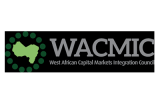Nigeria’s Transition to T+2 Settlement Cycle
Faster, Safer, and More Efficient Capital Markets – Effective 28th November 2025
About the Transition
The Securities & Exchanges Commission (SEC) has reviewed and approved for Nigeria’s capital market to transition from the current T+3 (Trade Date plus three days) settlement cycle to a T+2 (Trade Date plus two days) settlement cycle, effective November 28th, 2025. This means that securities and funds from trades will be settled within two business days after a transaction is executed, rather than the current three business days.
By reducing the time between trade execution and settlement, Nigeria’s market becomes more competitive, liquid, and resilient.
This upgrade reflects the commitment of regulators, exchanges, and financial institutions to modernize Nigeria’s capital markets, improving investor confidence and reducing risks associated with delayed settlements.
What is T+2?
T+2 is the settlement cycle where the completion of a securities trade, including the transfer of ownership and payment, occurs two business days after the trade is executed. For example, a trade executed on Monday (Trade Day) will be settled by Wednesday (Trade Day + 2 Business Days).
Here’s how it works:
Trade Day (T): A trade is carried out (e.g., an investor buys shares on Monday).
Settlement Day (T+2): The transaction is completed – cash is exchanged, and securities are delivered by the second business day after the trade (in this case, Wednesday).
Rationale for reducing the settlement cycle
Nigeria is adopting the T+2 settlement cycle to:
- Align with global standards: Major financial markets already use a T+2 or faster cycle for settlement of capital market transactions.
- Improve market liquidity: Faster settlement reduces counterparty risk and frees up capital quicker for reinvestment.
- Enhance investor confidence: A shorter cycle minimizes price fluctuations and uncertainties between trade and settlement, thus boosting investor confidence.
- Boost competitiveness: Attracts more foreign and domestic investors by meeting international standards and increasing operational efficiency.
Key Benefits for Investors
The transition to T+2 settlement brings significant advantages to all players in Nigeria’s capital markets—enhancing efficiency, reducing risks, and improving overall market confidence. Below are the key benefits for different market participants:
- Get funds/securities 1 day faster
- Less risk of price changes before settlement
- Easier reinvestment with quicker access to cash
Implementation Timeline
Governance Setup
Gap Analysis
Regulatory Alignment
Operational Changes
Validation & Transition
Market Engagement
Implementation
Brokers, custodians, and other intermediaries must adjust their operational timelines to meet the shorter settlement period. This includes ensuring that trade instructions, payments, and securities deliveries are processed more promptly.
No. The transition affects the settlement cycle, not trading hours. Market trading hours remain the same.
Market participants should review and update their internal processes, ensure adequate funding and securities are available earlier, and educate their clients about the new settlement cycle to avoid delays or failed trades.
Our Core Functions
Central depository for share certificates
Sub-registry for all quoted securities
Issuer of International Securities Identification Numbers
Custodian for local and foreign instruments
Issuer of Legal Entity Identifier (LEI) code for Nigeria
Our People
With experience spanning multiple industries, business types and functions, we know what it takes to achieve results.
For Support





For Support
Contact us
See Upcoming Events
Leave Us a Message
Customer Care
Already have an account?
Don’t have an account
Running out of subscription?
Running out of subscription?
